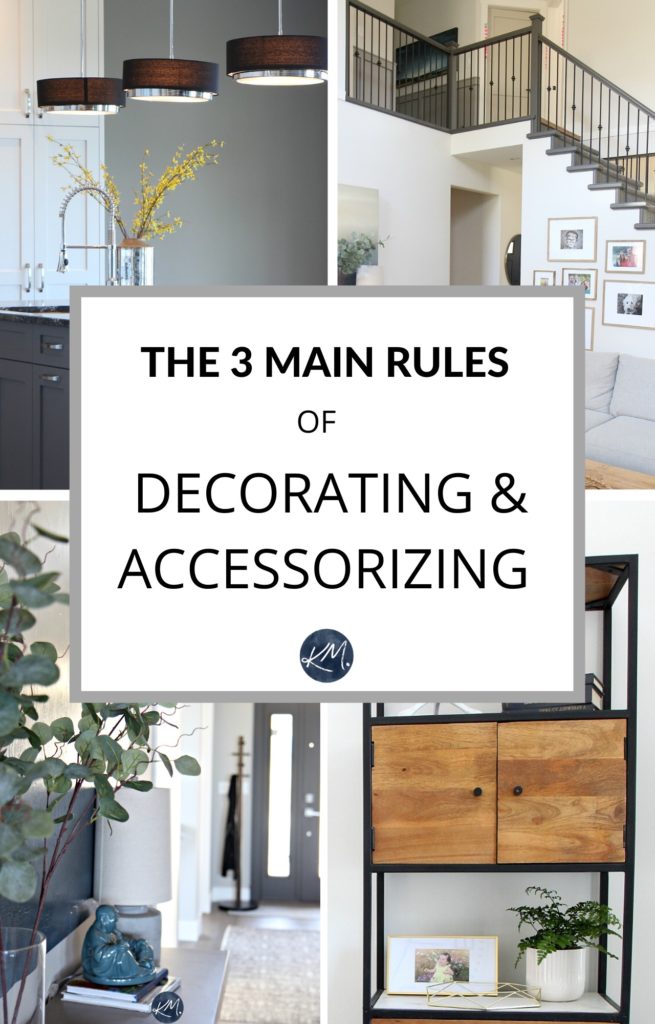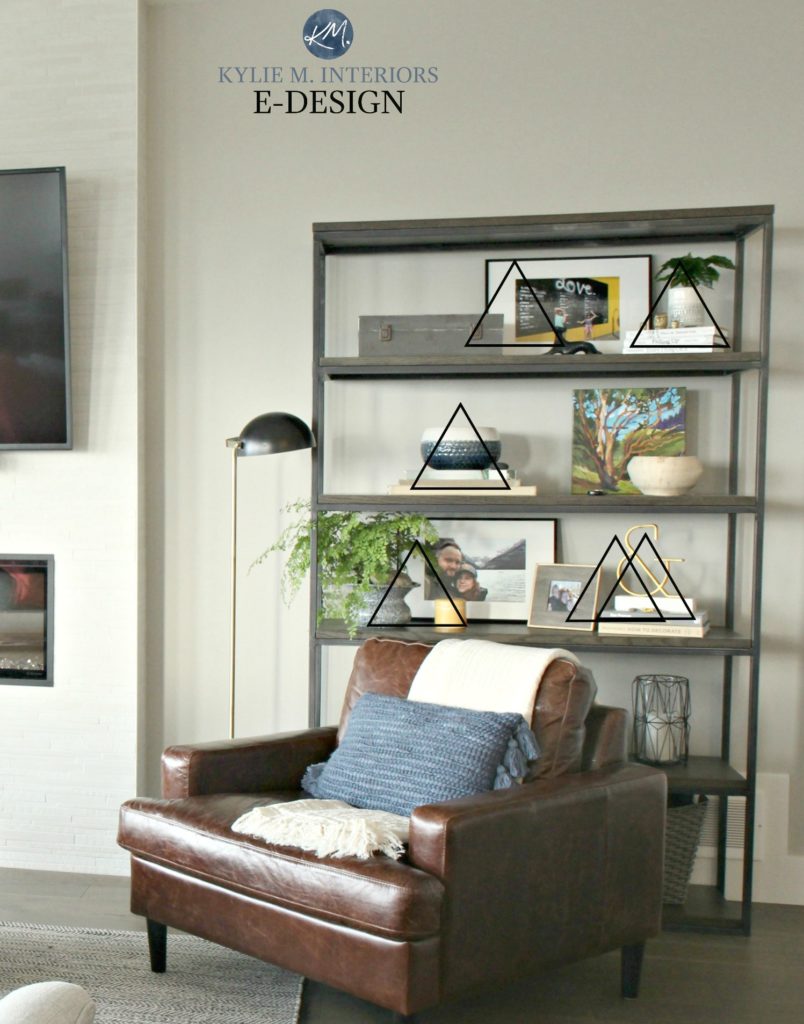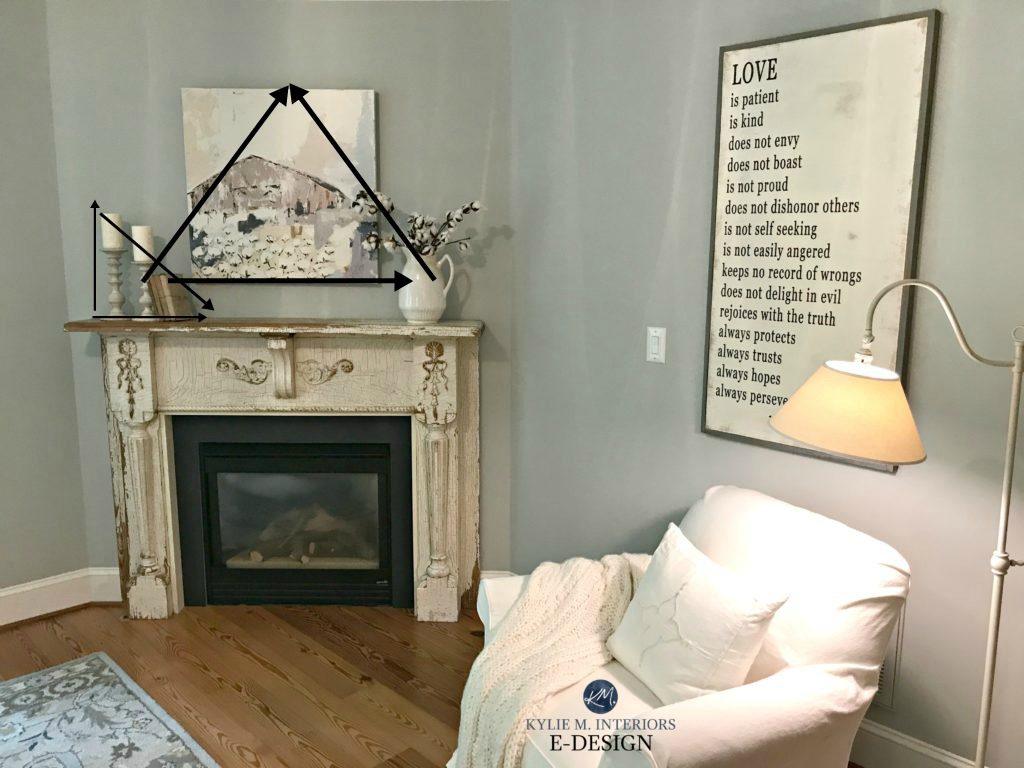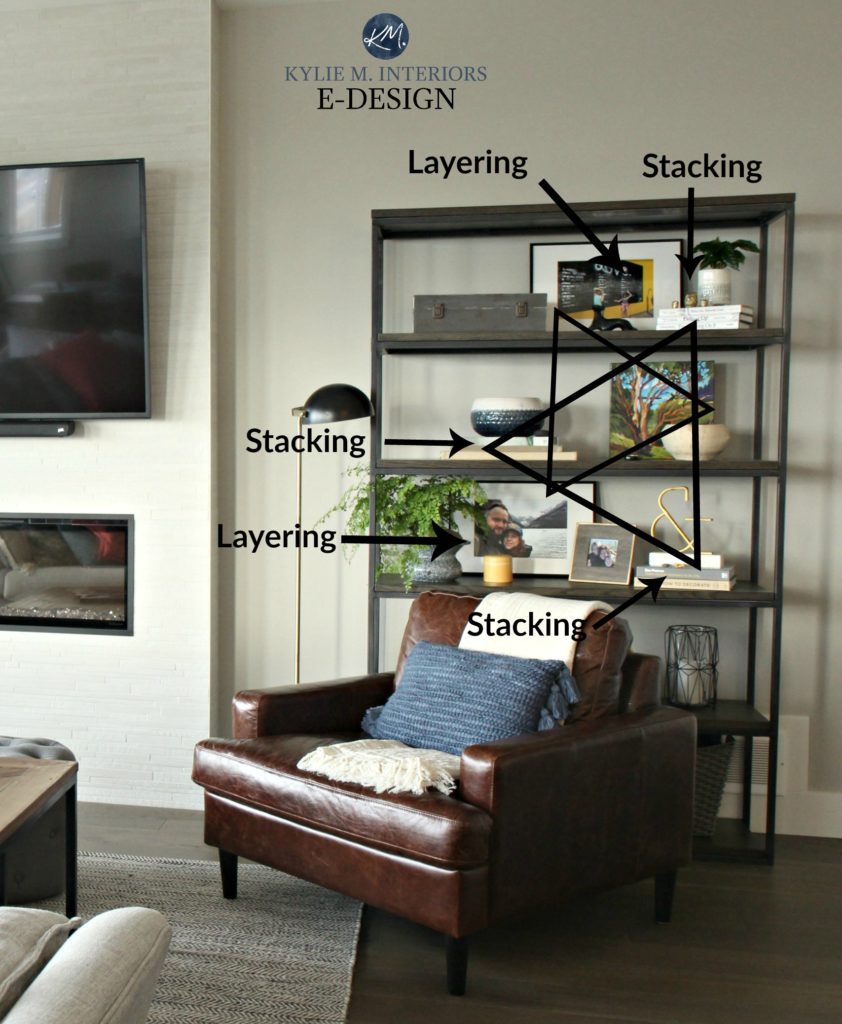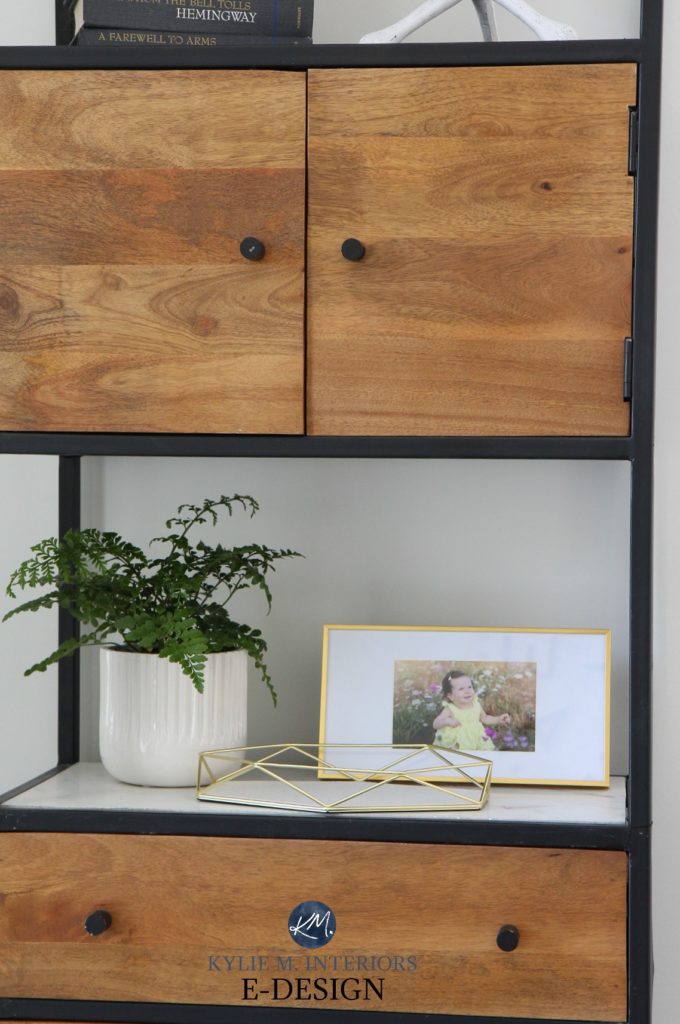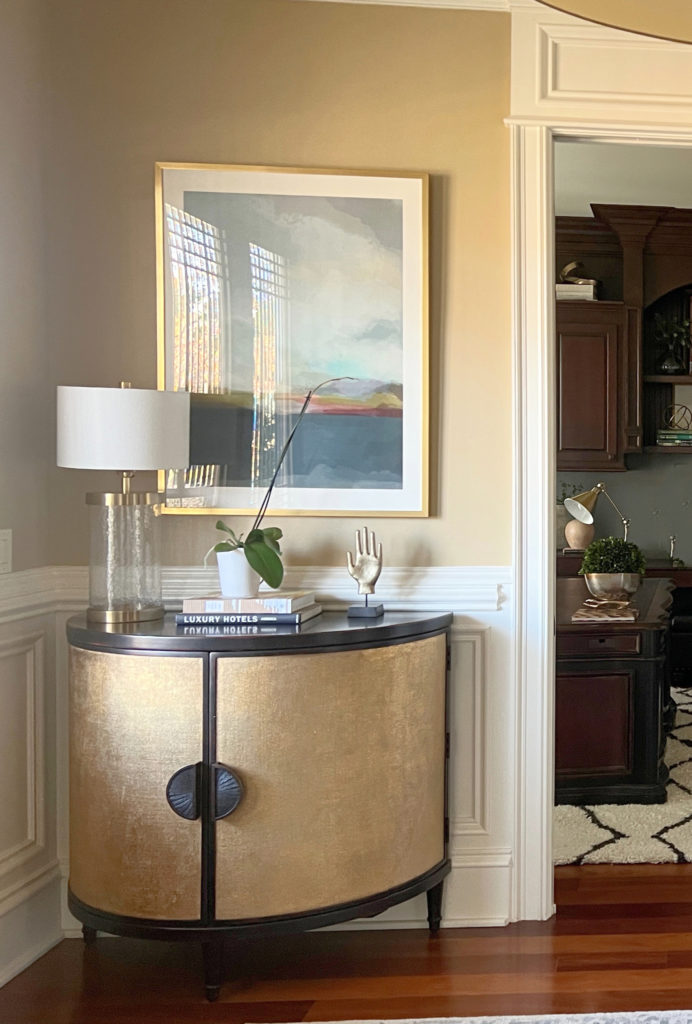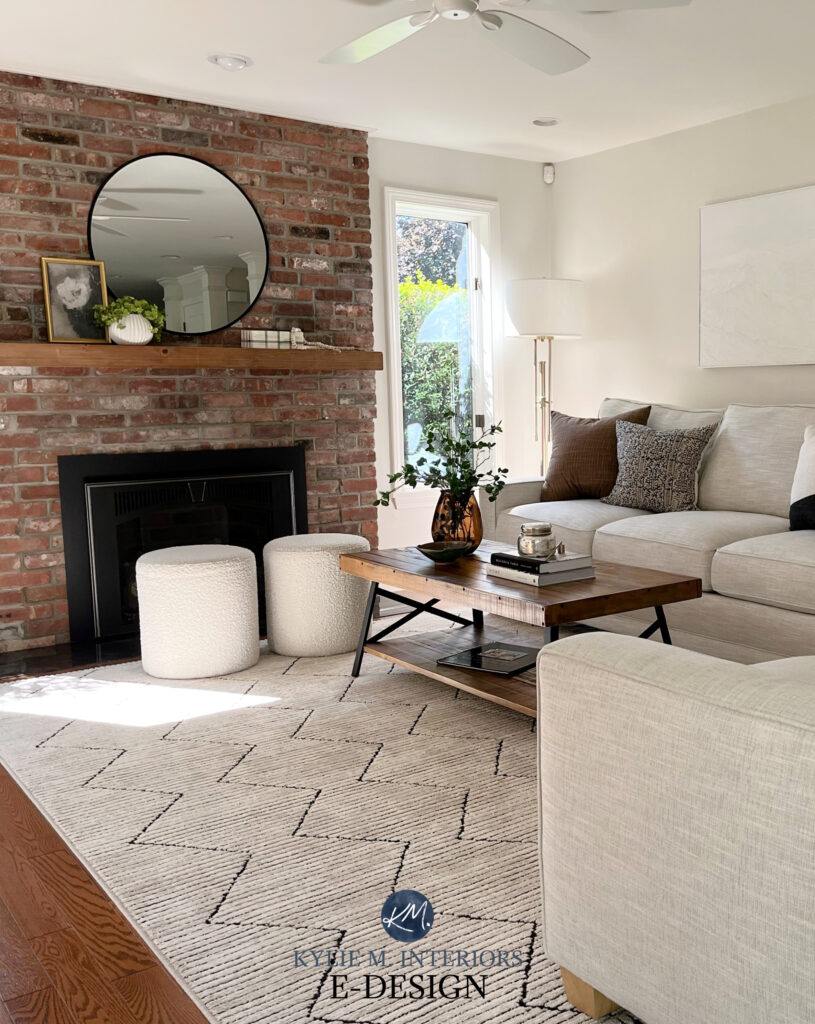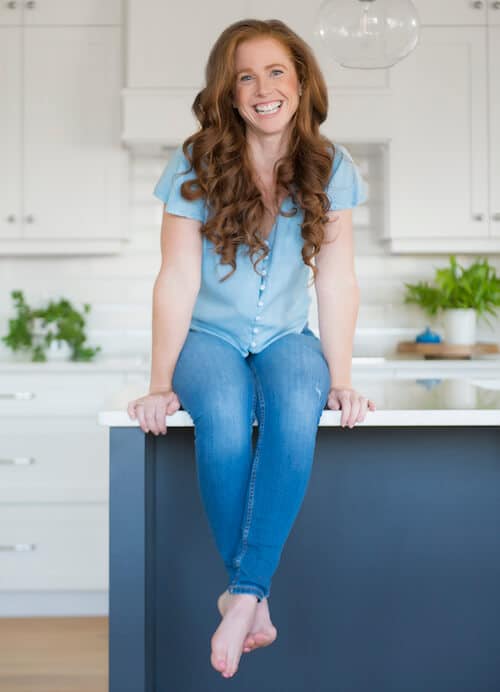SIMPLE EXPLANATIONS OF DECORATIVE TERMS
I’ve spent a lot of time writing blog posts on how to decorate everything from bookshelves and mantels to side tables and walls and found that I was referring to the SAME concepts repeatedly, without any real LANDING page for all of those guidelines and rules.
So I made one!
This is a BRIEF post, designed to give you the general description and application of each term. I have in-depth details and photos in much larger blog posts; they’re just spread out amongst 3-4 articles, whereas the info is all in one spot here for you! THIS BEING SAID, I fully encourage you to read MORE about these ideas in the links provided BEFORE you tackle a big decorating project!
1. WHAT IS A DECORATIVE TRIANGLE?
A Decorative Triangle is when you place three items with the goal of them visually connecting. Once everything is in place, you should be able to draw a line between the pieces and create a triangle.
This triangle can be a on a small scale, as shown in this next example…
Or it can be a LARGE triangle, as shown with this fireplace mantel…
If you want to learn MORE about Decorative Triangles and see some pretty pictures, check out this blog post…
How to Decorate a Mantel: 4 Guidelines to Follow
2. STACKING & LAYERING YOUR HOME DECOR
STACKING
Stacking is placing one item on top of another and almost ALWAYS applies to books. You would use a small number of books (often coffee table style books vs. small novels) and put them in a stack. Then, top them with a smaller decorative item, one that doesn’t come close to overlapping the edge of the books. If you are to draw a quasi-triangle, the decorative item would be the PEAK of the triangle.
LAYERING
Layering (sometimes called staggering – which is what I do on Friday nights after my two token glasses of wine), is a way to add depth and interest to your decorative triangle.
- The tallest item goes at the back of the display (it’s the anchor).
- The second-largest item goes to the right or left of the anchor (this is a secondary piece).
- The final item goes in front of the last two pieces (this is the finishing piece). It can also go UNDER one of the other pieces if you want to use a book
3. THE RULE OF THREE & ODD NUMBERS IN HOME DECOR
The Rule of Three and Odd Numbers states that odd numbers look better than even numbers. This is always tough as there are MANY EXCEPTIONS – sometimes two of something is perfect, other times, FOUR of something is even better! However, when you’re beginning your decorating adventures, using odd numbers in your decor is a great way to learn how to layer, stagger, and create a decorative triangle – and you can branch out from there.
If you want to learn more about this rule, I’ve got WAY more info in this blog post…
The Rule of Three and Odd Numbers in Decorating
WHAT IS A VIGNETTE IN DECORATING?
A vignette is a way of placing your home decor, and sometimes even furniture, so that the pieces look visually connected and your flows from one piece to the other with minimal interruption – it looks effortless.
In making a vignette, you often use the previous three topics – decorative triangles, stacking/staggering/layering, and the rule of odd numbers.
How to Create a Decorative Vignette
READ MORE
4-PART SERIES – HOW TO CREATE A TIMELESS HOME
The Best WHOLE HOME Gray & Greige Paint Colors
5 Ideas to Update Your Fireplace
The 6 Best Off-White Paint Colors
NEED HELP?
Check out my E-BOOKS and Online Paint Colour Consulting packages
Chat soon,
UPDATED IN 2023
Comments
More Posts
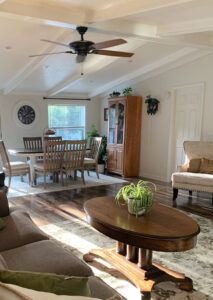
The 5 Best Creamy White or Off-White Paint Colors
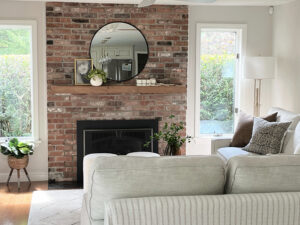
The 8 Best Warm Neutral Paint Colors With NO Yellow Undertones!


